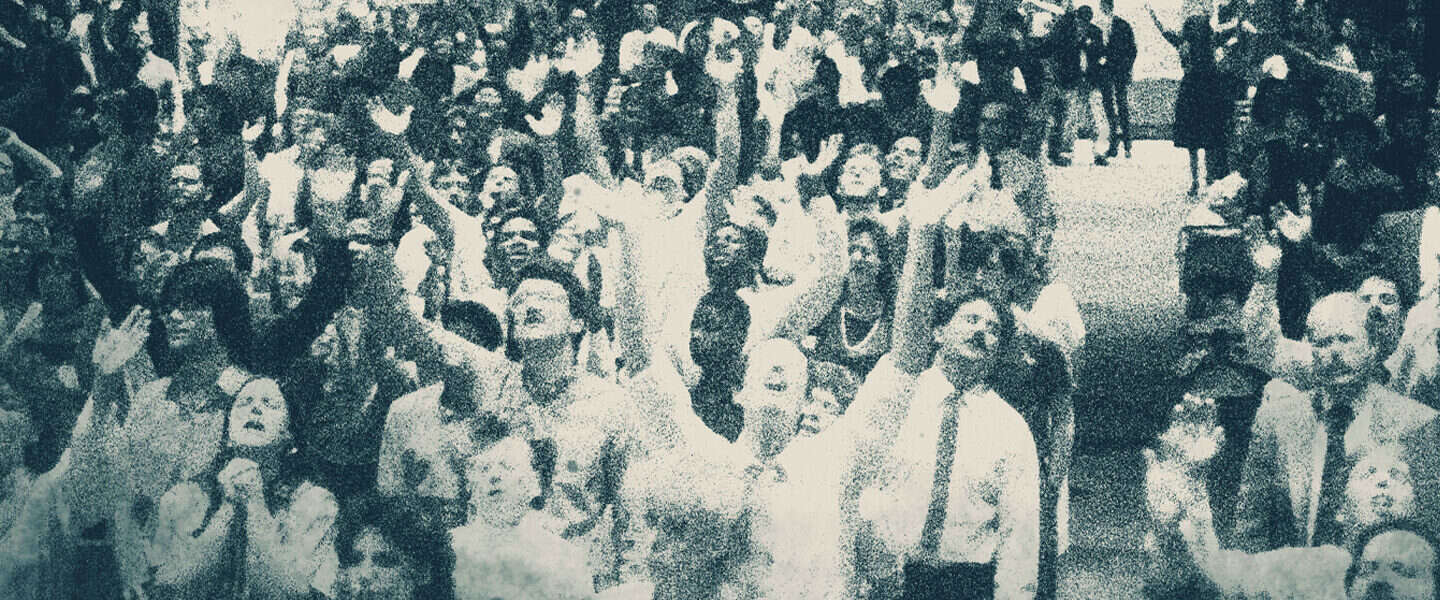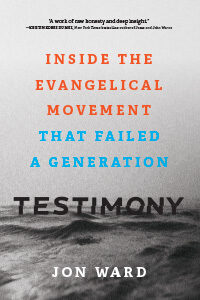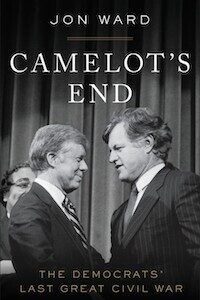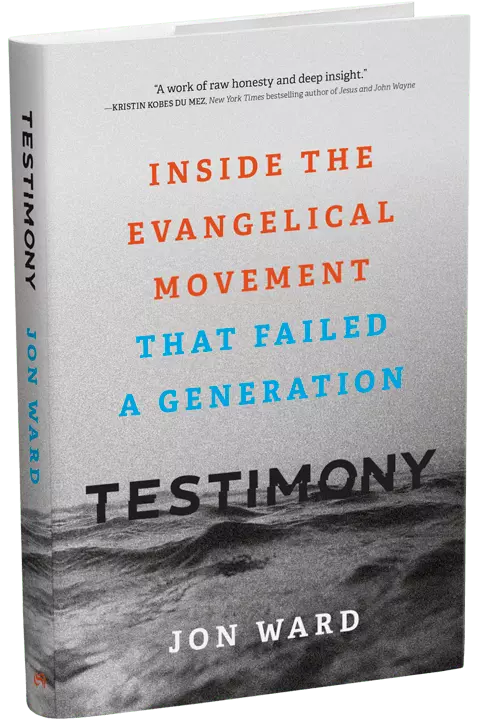
“A work of raw honesty and deep insight.”
— Kristin Kobes Du Mez, New York Times best-selling author of Jesus and John Wayne
Testimony
Inside the Evangelical Movement That Failed a Generation
Jon Ward’s life is divided in half: two decades inside the evangelical Christian bubble and two decades outside of it.
In Testimony, Ward tells the engaging story of his upbringing in, and eventual break from, an influential evangelical church. Ward sheds light on the evangelical movement’s troubling political and cultural dimensions, tracing the ways in which the Jesus People movement was seduced by materialism and other factors to become politically captive rather than prophetic.
A respected journalist, Ward asks uncomfortable but necessary questions, calling those inside and outside conservative Christian circles to embrace truth, complexity, and nuance. He recounts his growing alarm and grief over the last several years as evangelical conservatives attacked truth, rejected personal character, and embraced authoritarianism and conspiracism. He shares his search for a faith that embodies the values he was taught as a child.
Ward’s experience and reflections will resonate with many readers who grew up in the evangelical movement, as well as all those who have an interest in the health of the church and its impact on American life and politics.
Advance Praise for TESTIMONY
“Ward is consistently clear-sighted and perceptive as he charts a genuinely fascinating personal and spiritual evolution. This will resonate especially with Christians wondering about faith’s place in modern American society.”
“With raw honesty, deep insight, and a self-deprecating sense of humor, Jon Ward offers an insider’s view into the white evangelical world in which he was raised. Rubbing elbows with prominent figures and at one time seemingly destined to take up the mantle of leadership, he instead chose to walk away from it all. Through his eyes we see the inner logic of that world, what draws people in and what drives people away. Testimony will be illuminating for those who’ve walked this path and for those struggling to understand the world of conservative evangelicalism from the outside.”
— Kristin Kobes Du Mez, New York Times best-selling author of Jesus and John Wayne
“Testimony will be for this generation and moment what Don Miller’s Blue Like Jazz was for that moment. This is a work that will connect.”
— Michael Wear, Author of Reclaiming Hope: Lessons Learned in the Obama White House About the Future of Faith in America
“In Testimony, Jon Ward dissects the cultural world of evangelical Christianity from an insider’s perspective while employing his skills as a journalist to question its ethos and impact. He narrates an experience that will feel deeply familiar to many evangelicals while also illuminating the contours and context of the movement as many within it embraced Trumpism. Testimony demonstrates the power of truth — no matter who it comes from or where it leads. This book will make you ponder, discuss, and testify about your own journey and beliefs.”
— Jemar Tisby, PhD, New York Times bestselling author of The Color of Compromise and How to Fight Racism; Professor of History at Simmons College of Kentucky
“Ward’s personal story, of faith and family and things left behind, is also the story of how our culture came unglued. Testimony is a deeply moving book, and deeply important.”
— Matt Bai, Author of All the Truth is Out: The Week Politics Went Tabloid
“An Illuminating work that shines light into the fissures of our painful journey as Christians facing spiritual abuses in the church. Jon’s honest expose allows healing in us, and his journalistic insights bring a generative path toward the New.”
— Makoto Fujimura, Artist and Author Art+Faith: A Theology of Making
“Jon Ward’s honest, meditative, and beautifully written memoir shines a bright light on the often-obscured links between religion and politics in America.”
— Yuval Levin, author of A Time to Build, Director of Social, Cultural, and Constitutional Studies at the American Enterprise Institute
“Jon’s meticulous reporting has always brought nuance and life to his writing about politics; his thoughtfulness about faith is the secret weapon he’s now sharing with the world. He appreciates the complexity of belief and the deep human desire to connect to something larger than ourselves; that compassion makes his dissection of American evangelism in the age of Trump — its myopia and fatal incuriosity — deft and devastating.
“Even as he recounts his disillusionment with conservative Christianity, Jon remains a witness: Someone who seeks and documents the truth, even when that means turning his sights on himself. This book is honest, vulnerable, scrupulous, and surprising; a must-read for anyone seeking to navigate the fault lines of our polarized moment.”
— Ana Marie Cox, New York Magazine columnist
“Jon Ward’s TESTIMONY: Inside the Evangelical Movement That Failed a Generation is the book I’d been waiting for. I suspect there are millions more like me who will resonate with Jon’s powerful witness. And while the book holds important and meaningful content, it also functions in an atypical way. It’s an antidote to loneliness and heartbreak. To read it is to participate in a circle of trust where you are not alone, you’re not going crazy, and all is NOT well. This is a form of setting things right — a move toward rightness. Any words on a page that can achieve this good goal are worthy of our attention and gratitude. I’m listening and grateful.”
— Charlie Peacock, Grammy Award-winning music producer and Founder/Director Emeritus of Commercial Music Program, Lipscomb University School of Music
Order Testimony


